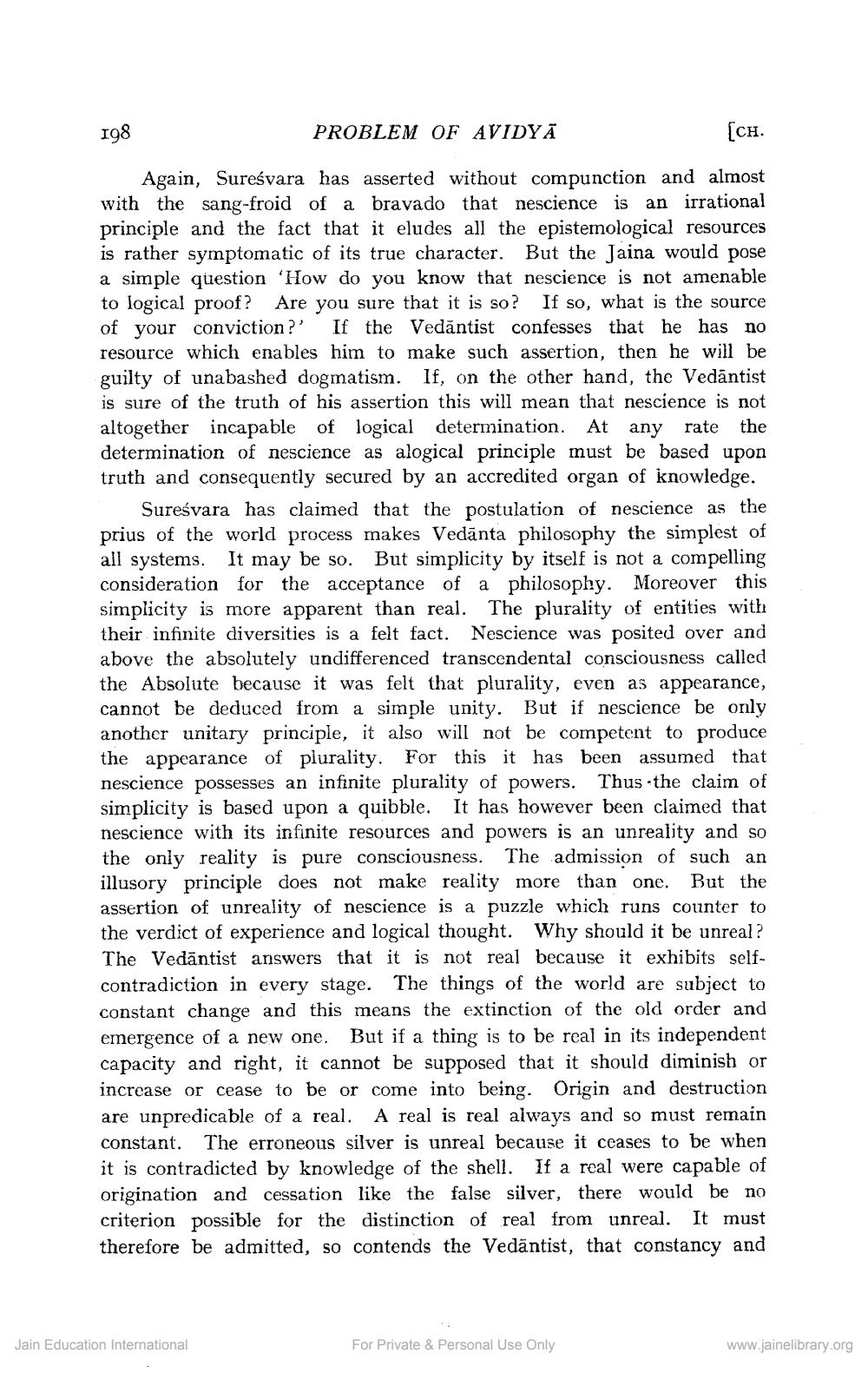________________
198
PROBLEM OF AVIDYA
[CH.
Again, Sureśvara has asserted without compunction and almost with the sang-froid of a bravado that nescience is an irrational principle and the fact that it eludes all the epistemological resources is rather symptomatic of its true character. But the Jaina would pose a simple question 'How do you know that nescience is not amenable to logical proof? Are you sure that it is so? If so, what is the source of your conviction?' If the Vedāntist confesses that he has no resource which enables him to make such assertion, then he will be guilty of unabashed dogmatism. If, on the other hand, the Vedāntist is sure of the truth of his assertion this will mean that nescience is not altogether incapable of logical determination. At any rate the determination of nescience as alogical principle must be based upon truth and consequently secured by an accredited organ of knowledge.
Sureśvara has claimed that the postulation of nescience as the prius of the world process makes Vedānta philosophy the simplest of all systems. It may be so. But simplicity by itself is not a compelling consideration for the acceptance of a philosophy. Moreover this simplicity is more apparent than real. The plurality of entities with their infinite diversities is a felt fact. Nescience was posited over and above the absolutely undifferenced transcendental consciousness called the Absolute because it was felt that plurality, even as appearance, cannot be deduced from a simple unity. But if nescience be only another unitary principle, it also will not be competent to produce the appearance of plurality. For this it has been assumed that nescience possesses an infinite plurality of powers. Thus the claim of simplicity is based upon a quibble. It has however been claimed that nescience with its infinite resources and powers is an unreality and so the only reality is pure consciousness. The admission of such an illusory principle does not make reality more than one. But the assertion of unreality of nescience is a puzzle which runs counter to the verdict of experience and logical thought. Why should it be unreal? The Vedāntist answers that it is not real because it exhibits selfcontradiction in every stage. The things of the world are subject to constant change and this means the extinction of the old order and emergence of a new one. But if a thing is to be real in its independent capacity and right, it cannot be supposed that it should diminish or increase or cease to be or come into being. Origin and destruction are unpredicable of a real. A real is real always and so must remain constant. The erroneous silver is unreal because it ceases to be when it is contradicted by knowledge of the shell. If a real were capable of origination and cessation like the false silver, there would be no criterion possible for the distinction of real from unreal. It must therefore be admitted, so contends the Vedāntist, that constancy and
Jain Education International
For Private & Personal Use Only
www.jainelibrary.org




